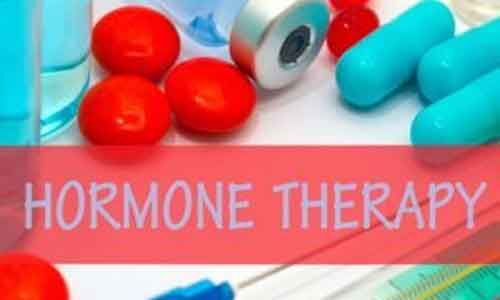- Home
- Medical news & Guidelines
- Anesthesiology
- Cardiology and CTVS
- Critical Care
- Dentistry
- Dermatology
- Diabetes and Endocrinology
- ENT
- Gastroenterology
- Medicine
- Nephrology
- Neurology
- Obstretics-Gynaecology
- Oncology
- Ophthalmology
- Orthopaedics
- Pediatrics-Neonatology
- Psychiatry
- Pulmonology
- Radiology
- Surgery
- Urology
- Laboratory Medicine
- Diet
- Nursing
- Paramedical
- Physiotherapy
- Health news
- Fact Check
- Bone Health Fact Check
- Brain Health Fact Check
- Cancer Related Fact Check
- Child Care Fact Check
- Dental and oral health fact check
- Diabetes and metabolic health fact check
- Diet and Nutrition Fact Check
- Eye and ENT Care Fact Check
- Fitness fact check
- Gut health fact check
- Heart health fact check
- Kidney health fact check
- Medical education fact check
- Men's health fact check
- Respiratory fact check
- Skin and hair care fact check
- Vaccine and Immunization fact check
- Women's health fact check
- AYUSH
- State News
- Andaman and Nicobar Islands
- Andhra Pradesh
- Arunachal Pradesh
- Assam
- Bihar
- Chandigarh
- Chattisgarh
- Dadra and Nagar Haveli
- Daman and Diu
- Delhi
- Goa
- Gujarat
- Haryana
- Himachal Pradesh
- Jammu & Kashmir
- Jharkhand
- Karnataka
- Kerala
- Ladakh
- Lakshadweep
- Madhya Pradesh
- Maharashtra
- Manipur
- Meghalaya
- Mizoram
- Nagaland
- Odisha
- Puducherry
- Punjab
- Rajasthan
- Sikkim
- Tamil Nadu
- Telangana
- Tripura
- Uttar Pradesh
- Uttrakhand
- West Bengal
- Medical Education
- Industry
Menopausal hormone therapy reduces HDL-CEC and improves CV risk factors, find study

Seattle WA: Transdermal ERT abrogates an increase in serum HDL CEC which is noted during natural menopause, however, transdermal ERT leads to favorable changes in major CV risk factors, suggests a recent study in the Journal of Clinical Lipidology.
Cholesterol efflux capacity (CEC) is an in-vitro assay that measures the ability of an individual's HDL to promote cholesterol efflux from cholesterol donor cells such as macrophages. CEC of HDL is a predictor of cardiovascular risk independent of HDL-C levels.
In perimenopausal women, the cardiovascular (CV) safety of estrogen replacement therapy remains uncertain. It is known that exogenous estrogen increase HDL cholesterol (HDL-C) but the estrogen-mediated effects on alternative metrics of HDL that may better predict CV risk are unknown. Considering this, Katya B. Rubinow, University of Washington School of Medicine, Seattle WA, and colleagues determined the effects of transdermal ERT (estrogen replacement therapy) on HDL composition and cholesterol efflux capacity (CEC), as well as the relationships between these metrics and CV risk factors.
For the purpose, the researchers analyzed fasting plasma samples from 101 healthy, perimenopausal women. They were randomized to receive either transdermal placebo or transdermal estradiol (100 μg/24 hr) with intermittent micronized progesterone. Serum HDL CEC, HDL particle concentration, HDL protein composition, insulin resistance and brachial artery flow-mediated dilatation (FMD) were measured at baseline and after 6 months of treatment.
Key findings of the study include:
- No difference between groups was found for change in plasma HDL-C.
- Between-group differences were found for changes in serum HDL total CEC [median change from baseline -5.4% ERT group versus +5.8% placebo group] and ABCA1-specific CEC [median change from baseline -5.3% ERT group versus +7.4% placebo group].
- Relative to placebo, transdermal ERT led to reductions in LDL-C and insulin resistance.
- An inverse correlation was found between changes in serum HDL total CEC and FMD (β=-0.26).
"Natural menopause leads to an increase in serum HDL CEC, an effect that is abrogated by transdermal ERT. However, transdermal ERT leads to favorable changes in major CV risk factors," concluded the authors.
The study, "Perimenopausal Transdermal Estradiol Replacement Reduces Serum HDL Cholesterol Efflux Capacity but Improves Cardiovascular Risk Factors," is published in the Journal of Clinical Lipidology.
DOI: https://doi.org/10.1016/j.jacl.2020.11.009
Dr Kamal Kant Kohli-MBBS, DTCD- a chest specialist with more than 30 years of practice and a flair for writing clinical articles, Dr Kamal Kant Kohli joined Medical Dialogues as a Chief Editor of Medical News. Besides writing articles, as an editor, he proofreads and verifies all the medical content published on Medical Dialogues including those coming from journals, studies,medical conferences,guidelines etc. Email: drkohli@medicaldialogues.in. Contact no. 011-43720751


